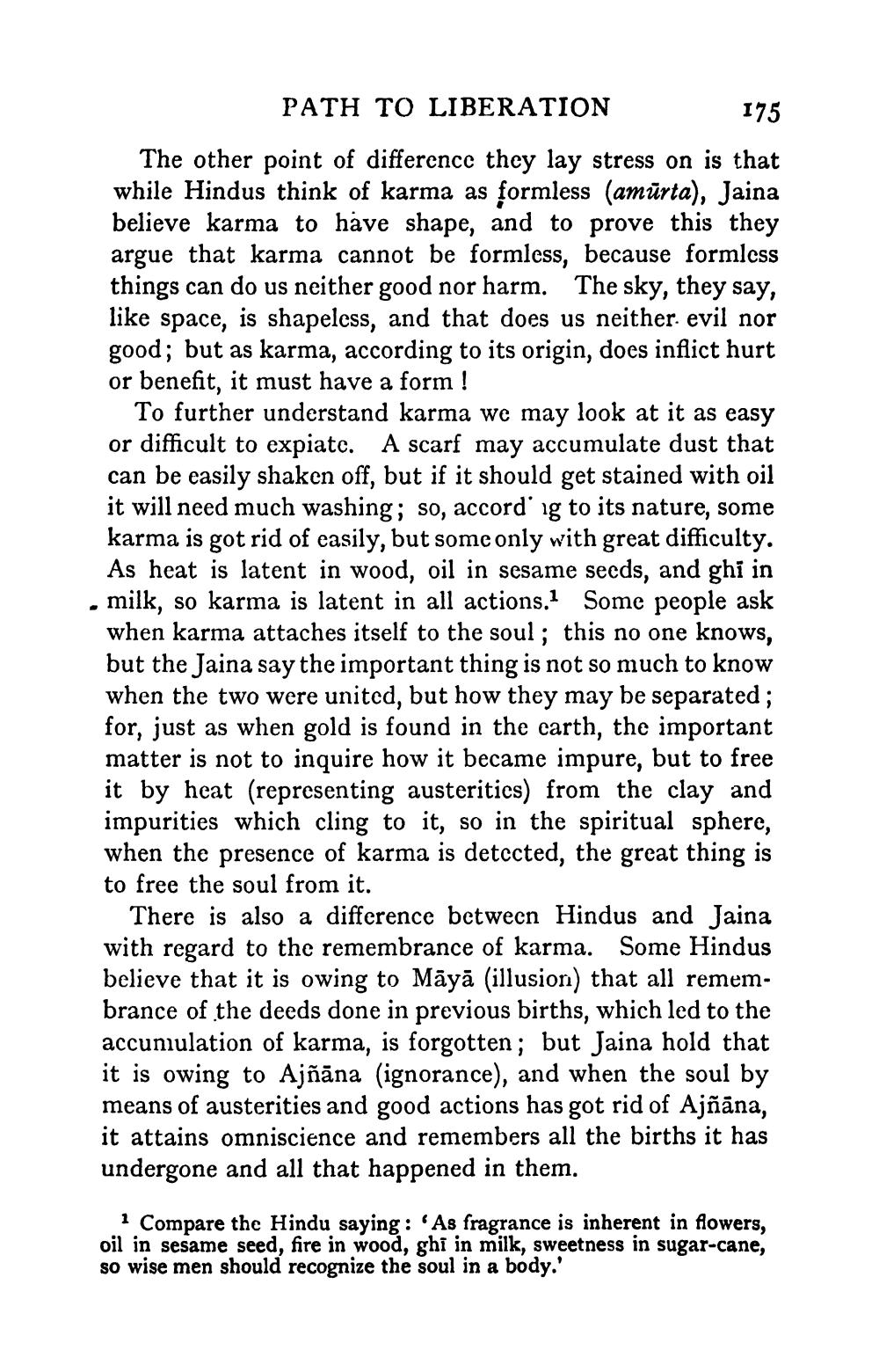________________
PATH TO LIBERATION
175 The other point of difference they lay stress on is that while Hindus think of karma as formless (amūrta), Jaina believe karma to have shape, and to prove this they argue that karma cannot be formless, because formless things can do us neither good nor harm. The sky, they say, like space, is shapeless, and that does us neither. evil nor good; but as karma, according to its origin, does inflict hurt or benefit, it must have a form!
To further understand karma we may look at it as easy or difficult to expiate. A scarf may accumulate dust that can be easily shaken off, but if it should get stained with oil it will need much washing; so, accord' ag to its nature, some karma is got rid of easily, but some only with great difficulty.
As heat is latent in wood, oil in sesame seeds, and ghi in , milk, so karma is latent in all actions. Some people ask
when karma attaches itself to the soul; this no one knows, but the Jaina say the important thing is not so much to know when the two were united, but how they may be separated; for, just as when gold is found in the carth, the important matter is not to inquire how it became impure, but to free it by heat (representing austeritics) from the clay and impurities which cling to it, so in the spiritual sphere, when the presence of karma is detected, the great thing is to free the soul from it.
There is also a difference between Hindus and Jaina with regard to the remembrance of karma. Some Hindus believe that it is owing to Māyā (illusion) that all remembrance of the deeds done in previous births, which led to the accumulation of karma, is forgotten; but Jaina hold that it is owing to Ajñāna (ignorance), and when the soul by means of austerities and good actions has got rid of Ajñāna, it attains omniscience and remembers all the births it has undergone and all that happened in them.
1 Compare the Hindu saying: 'As fragrance is inherent in flowers, oil in sesame seed, fire in wood, ghi in milk, sweetness in sugar-cane, so wise men should recognize the soul in a body.'




